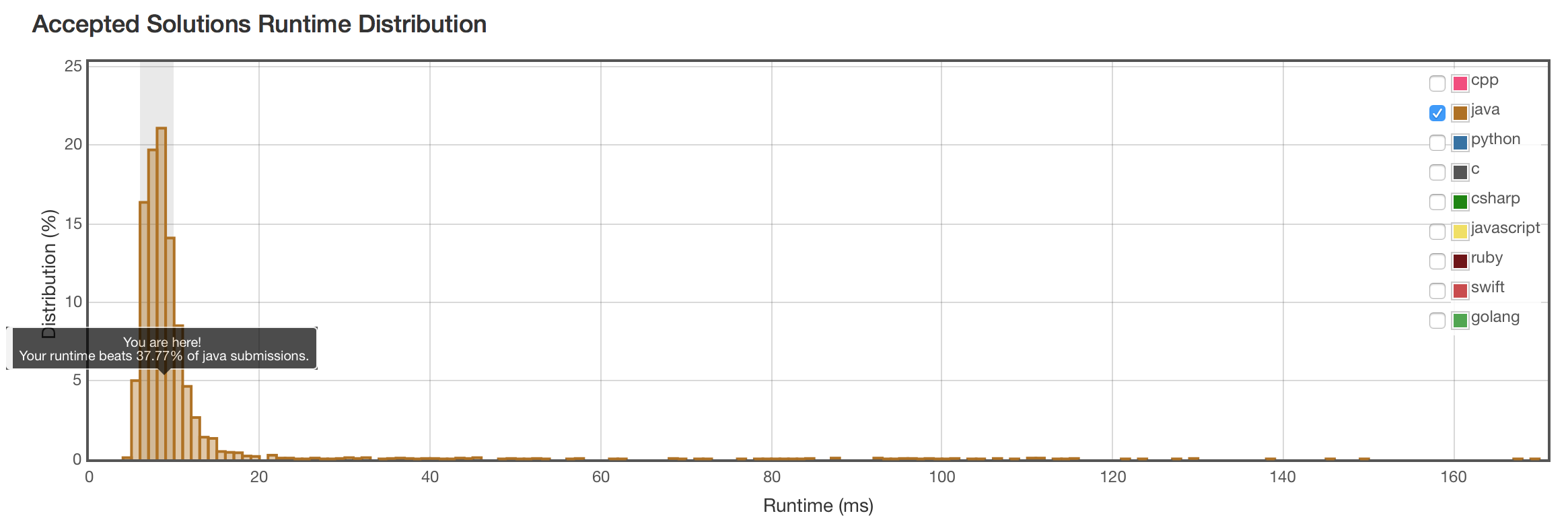题目
Given a collection of distinct numbers, return all possible permutations.
For example, [1,2,3] have the following permutations:
[
[1,2,3],
[1,3,2],
[2,1,3],
[2,3,1],
[3,1,2],
[3,2,1]
]
标准回溯算法 \(O(n^n)\)
这里唯一的的小技巧,是candidates的容器,选了LinkedList。为的是随机插入,删除操作快\(O(1)\)。
除了把candidates用List容器装之外,还可以保留原来的数组,但额外再维护一个数组,来表示哪些数字用过了。但效率上没有本质的区别。
代码
public class Solution {
public List<List<Integer>> permute(int[] nums) {
List<List<Integer>> result = new ArrayList<>();
List<Integer> buff = new ArrayList<>();
List<Integer> candidates = new LinkedList<>(); //选LinkedList为了插入,删除操作快
for (int i = 0; i < nums.length; i++) {
candidates.add(nums[i]);
}
backtracking(buff,candidates,result);
return result;
}
public void backtracking(List<Integer> buff, List<Integer> candidates, List<List<Integer>> result) {
if (candidates.size() == 0) { result.add(new ArrayList<Integer>(buff)); return; }
for (int i = 0; i < candidates.size(); i++) {
int temp = candidates.get(i);
buff.add(temp);
candidates.remove(i);
backtracking(buff,candidates,result);
candidates.add(i,temp);
buff.remove(buff.size()-1);
}
}
}
结果
银弹!
